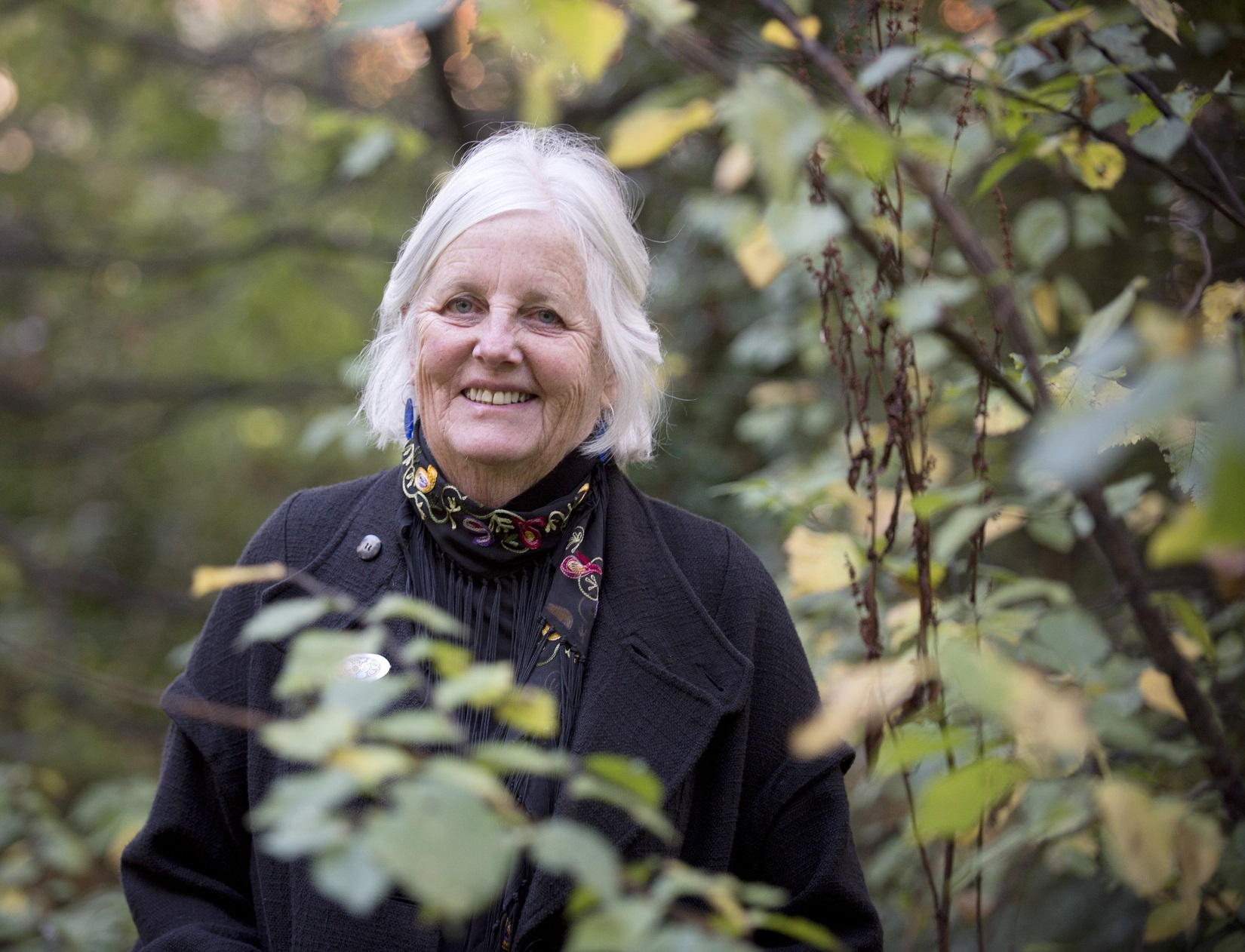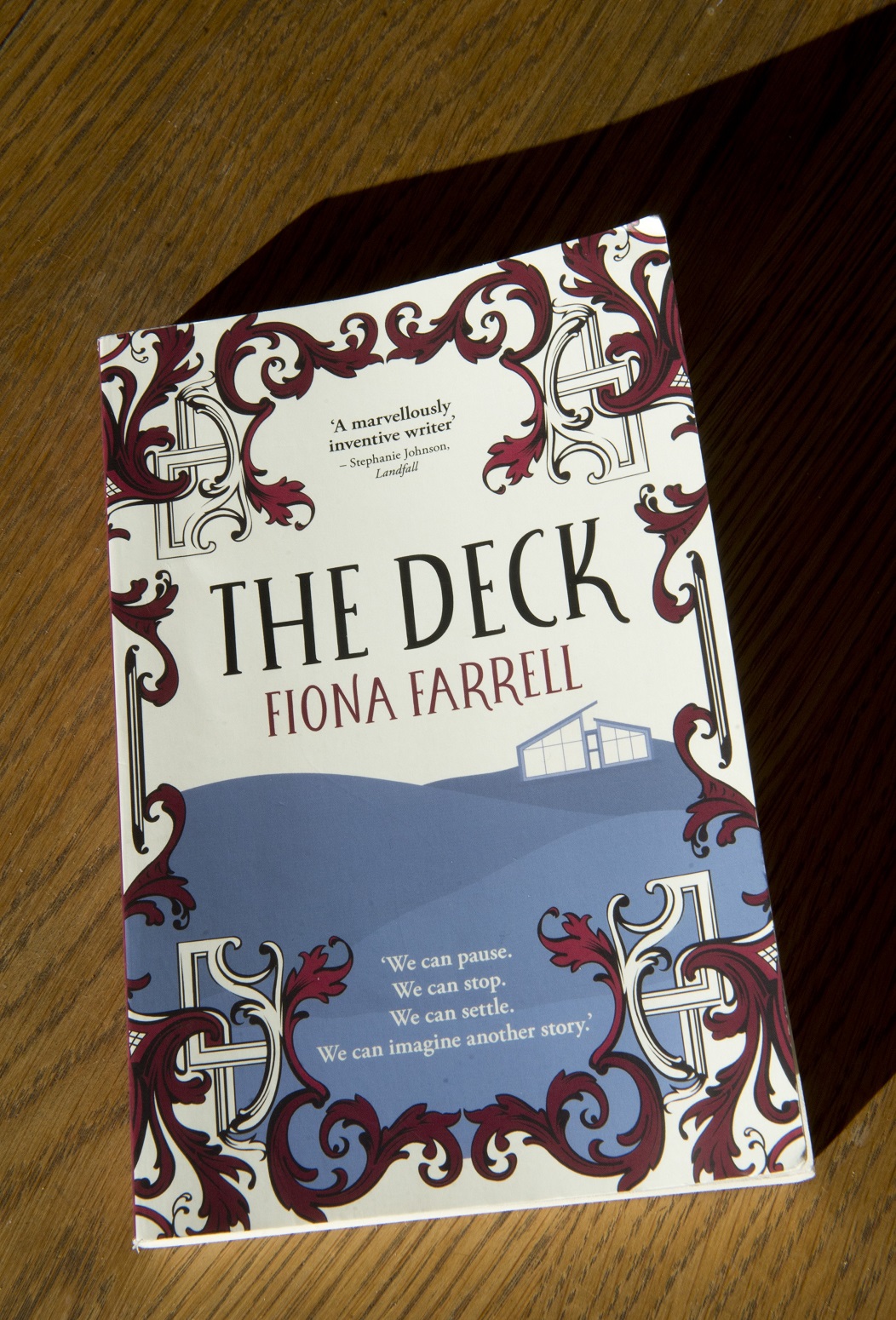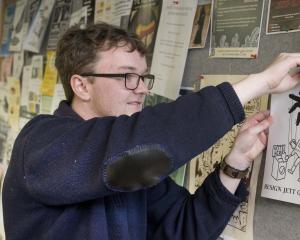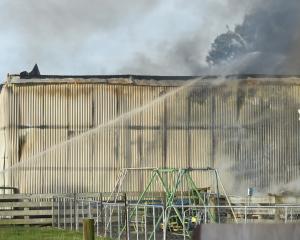
Two days after I started reading The Deck, Fiona Farrell’s capacious, inventive, sideways-leaping novel about a fictional, haemorrhagic pandemic, Covid hit my household for the first time.
It was a bleak, uncomfortable irony.
The way the virus sucks energy left me seeing humans as biological puppets chasing witless goals. At the lowest slump, I doubted I’d return to seeing "a point to it all": feeling a private sense of purpose, finding love and wonder in both the mind-created and natural world. When I could read again, the irony grew.
This very scouring-out of meaning is a microcosm of what The Deck confronts in a broader, more searching sociological sense.
Farrell’s novel asks directly and indirectly what the point of story is. In the face of the turbulence wrought by our own recent pandemic and mounting ecological crisis, the book’s voice wants to know, "Will this plague be followed by another and another? ... Is this another step towards human annihilation? And if that’s the case, what is the point of writing fiction? What’s the point of starting on a novel?"
Within a few pages, the novel dispels its own anxieties; and it roundly dispelled mine. Farrell’s work reinforces that we need fiction to help us know ourselves as members of a variegated culture; in the deepest sense to help us understand our impulses, beliefs, choices, drives, triggers, losses, capacities, flaws, secrets, struggles and triumphs.
As Farrell said, both to the large audience at her Dunedin launch, and in our recent interview: "When I’ve finished writing non-fiction I understand something, I know what I know.
"Writing fiction is the opposite. It is not rational. You sit at your desk muttering away to people who don’t exist, out there on the knife edge between technical control and hallucination or dreaming, and like a dream, when I finish writing fiction, I know what I feel."
The Deck fuses both modes of writing. The non-fiction frame deftly condenses the literary precedent of Giovanni Boccaccio’s 14th-century plague-tale, The Decameron; historical pandemics; recent Covid pandemic conditions and the political response here in Aotearoa.
Her novel is set right here, Farrell says, "because New Zealand is the most interesting culture in the world".
The cobalt blue, glass earrings that she wears on the sleety, autumnal day we meet to talk seem to blaze suddenly with a burst of light as the force of conviction makes her lean forward in emphasis.
"I’m fascinated by the pain and creativity and joy of amalgamating cultures; there is enormous pain that we’ve had to deal with here, and yet I’m captivated by how we’ve evolved over my lifetime. My own childhood can seem as remote as if it was the 1600s."
That childhood involved a level of physical freedom and independence that makes me feel as hushed and marvelling as a child at story time: when they were only 11 and 13, Farrell and her sister were allowed to ride alone, on horseback, all the way from Oamaru to Dunedin to take part in the local A&P show.
Fascination for such details of social and historical change thread through all Farrell’s fiction: an interest made overt in The Deck in the non-fiction frame.
Narrated in the third person, about the actions both of the nation and "the novelist", it is set in Dunedin, the place Farrell still thinks of as "my mother’s town"; a place where a great-great-grandfather had helped build Knox Church and ran the Sunday school for 19 years; a place of "little great-aunts in houses filled with shell collections and silver ornaments and such", which she found utterly overwhelming as a child.
Thus, the top and tail of the book might seem like autobiography behind a thin veil. Yet they are also in one sense a distancing, analytical gesture, as if Farrell places a lens of science (or anthropology, or sociology) over even her own creative vocation.
In these sections, to understand our social moment, Farrell tries to get the critical, removed, historically informed and numerically backed-up view, rather than the swirling wind mills of individual feeling.
Yet this narrative choice also creates an air of allegory: it lifts the narrative into the realm of fable, perhaps of cautionary tale.
When I ask Farrell if the writing process for this book tossed up any surprises for her, she barely hesitates with her "yes", naming her discussions with "all the people who told me about their professional lives so I could make convincing characters".
"Caroline Davies, for example, who told me about working in the film industry in LA in the 1980s, my cousin Patrick O’Neill who told me about being a techie when New Zealand TV was in its infancy ... lots of people listed in the acknowledgements in the book. So interesting and full of surprises."
These conversations stock the central gold seam of the novel.
The narrative voice dips in and out of intimacy with a large cast of different characters: a group of friends who meet up at a private crib, on a brief, snatched retreat they make while they can, before they suspect a national lockdown will begin.
These friends range from ex-judge to ship’s chef; from quiet, handyman surfer to risk-taking ex LA film-director; from straight male to female and queer non-binary; from retiree to teenager; from Pākehā New Zealander to an Italio-Australian; to two adoptive siblings, Ani and Peter, who know they are of Māori heritage but have never been able to trace their whakapapa.
The episodic nature of the novel, where each character recounts anecdotes from their own pasts, is an artistically bold move for the writer to make. Yet it works. It becomes a celebration of humanity in all its possibility; an illumination of the bright, giddy, unpredictable, diverse human carnival with all its terrors and delights: a reminder, in fact, of all a pandemic threatens.

These episodic stories also offer the reader a fragile idyll, before the ominous approach of the fictional disease.
It’s a respite that makes the return of harm all the more shocking, as the novel tumbles to the first of its two endings.
My sense of the novel’s boldness comes from thinking of the way it steps outside popular notions of narrative shape: terms like rising jeopardy, or Freytag’s pyramid. Over a cup of tea and home-baking on the chilly May morning that we meet, I ask Farrell about this structure. Her answer is quiet but resolute. (She mocks herself, at one point, as coming from "stolid genetic stock like a Shetland pony"; yet she seems far more as if she has the questing, agile and alert bearing of a self-possessed bird: kōtuku, say, or spoonbill.) Farrell demurs.
"Writing the chain of stories didn’t feel like a ‘risk’. I write in small snatches anyway, whatever occurs to me that morning ... I liked the way the stories switched gear, and tone. They felt like varying levels of fictionality: there was the non-fiction frame, but with a thinly-veiled fictional character, the novelist, then the style of contemporary fiction where people’s lives are sketched on a page with gathering complexity, then the tales which are closer to the tone of medieval tales with that air of fairy-tale unreality, chance and coincidence."
Farrell’s love of the magical, fabular aspect of creativity never gives the impression of a wispish, scattered writer. Her bedrock belief is that politics underlines everything.
"Every aspect of any culture, including its books, is political and influenced by political principles and decision-making. They become especially visible under stress: an earthquake, flood or pandemic — which is a completely predictable natural event, especially when we create the perfect conditions for a virus to surge and then we transmit it at great speed all over the planet.
"What fascinates me is how cultures respond to such events.
"It’s why I so admire Ardern. Without her decisiveness, without lockdowns, MIQ, masks and vaccinations, mandated where necessary, this country could so easily have had a result like Bulgaria, which did virtually nothing to control the virus and lost 75,000 people from a population not much larger than ours. Imagine the grief! I mean, we’ve just remembered the deaths of 16,000 New Zealanders in battles a century ago.
"Imagine the grief nationwide if 35,000 of us had died in 2020!
"The Deck isn’t exactly ‘a Covid novel’. It’s set in the future, with a different virus and other stresses, but it wouldn’t have been written at all if Covid had overwhelmed us back in 2020 and I had become ill, or died, or been consumed by grief."
The Deck is laced through with fear of environmental degradation. A poem by Farrell’s granddaughter in response to the climate crisis was a powerful trigger for the questions about fiction that initially barb the novel.
"I have always thought fiction was truth and delight and reassurance. Novels usually end happily, as I said at my launch. But how do you write a happy ending when a 7-year-old wonders if she’s going to survive?"
Ouff, The Deck’s ending. Provisional, Biblical, grounded in the history of exile and refugees, the closing imagery of the fictional portion of the book will divide readers into those who find it optimistic, and those who find it achingly sad. Yet it seems to me that the non-fiction frame is more convinced by the possibility of optimism.
When I ask if Farrell leans more towards that sense of hope, even now, she sets down her empty mug, as if readying herself to take a stand.
"The ending is ambiguous and I’d write it the same way if I were doing so right now.
"I think we have been convinced by a terrible story for a couple of millennia that proposes Armageddon and ultimate destruction. ... I think we have to stop denigrating the notion of a better future. That’s another reason I admire Ardern. She proposed a vision and began working step by step towards it in the face of a barrage of threats and ridicule and denigration."
It is often all too easy to feel despair’s cold seep when reading about brutish misogynists and conspiracy theorists emboldened and amplified either by social media or political figureheads like liar and sexual criminal Trump.
But Farrell is firm in her push back against the gloom.
"Reasons to be hopeful? That this country still produces visionaries, that thousands of hungry children are having a lunch at school, that single-use plastic bags are no longer being dumped into the landfills, that military-style guns have been turned into the police, that ... hundreds of small, meaningful improvements [are] building toward that overarching vision of a fair and just society where it’s great to be a child."
As a subset under visionaries, I’d add human imagination, and gifted writers like Farrell.
The title The Deck might be a playful, slangy abbreviation of The Decameron, yet it suggests several things. It’s the deck of cards, stacked for or against us. It’s the blow from fate that strikes us off our feet. Yet it can also be that architectural feature for sun and leisure: a quintessentially Kiwi place to pause, take stock. Or it might be the deck of a ship where we find the long view, as we approach fresh territory: a site of renewal and discovery from which we observe and speculate.
Farrell’s novel acts as this nexus itself: urging us to use our capacity to think, imagine, and work our way into new realities.
The book
- The Deck, by Fiona Farrell, published by Penguin Random House NZ, is out now.












